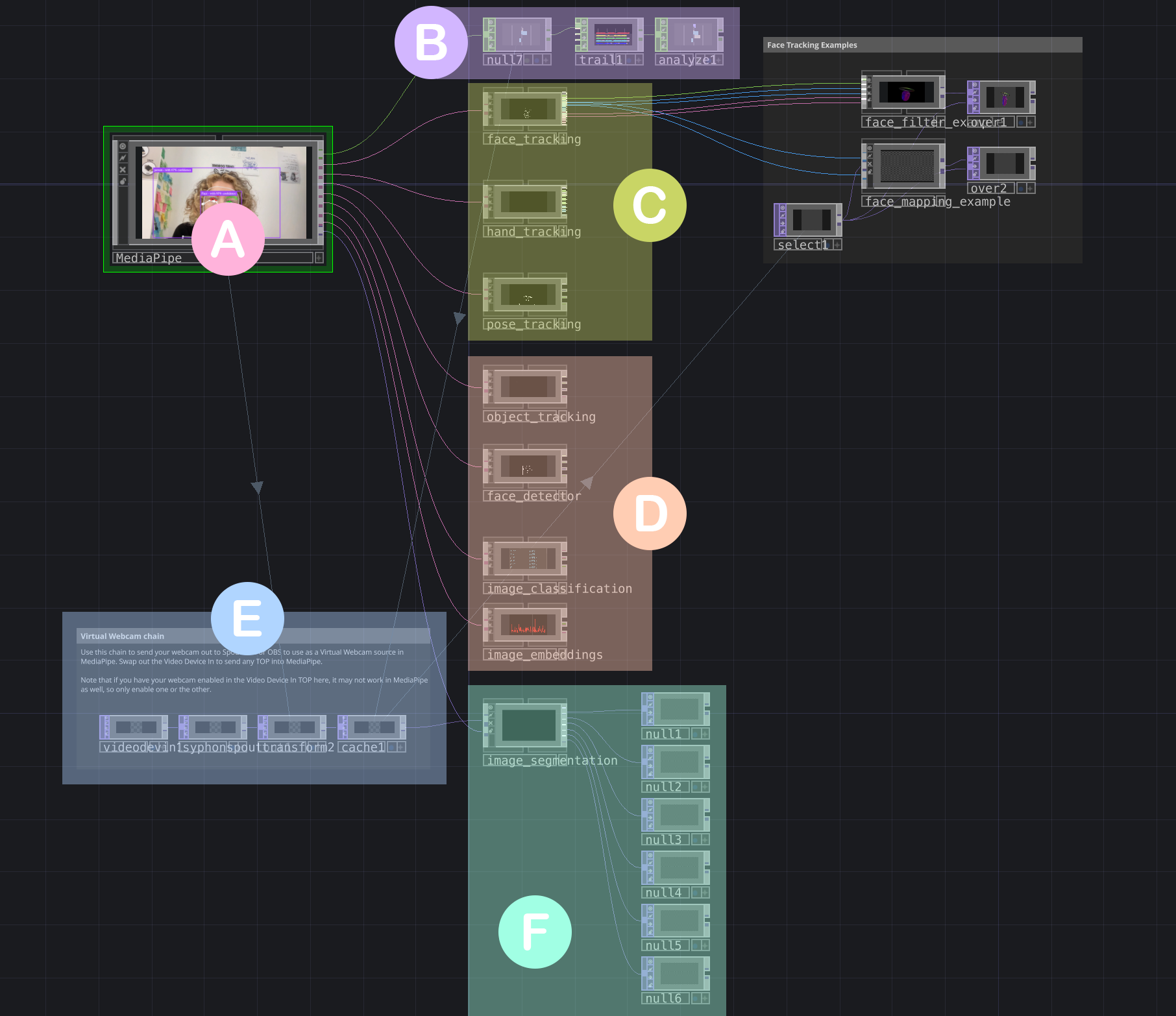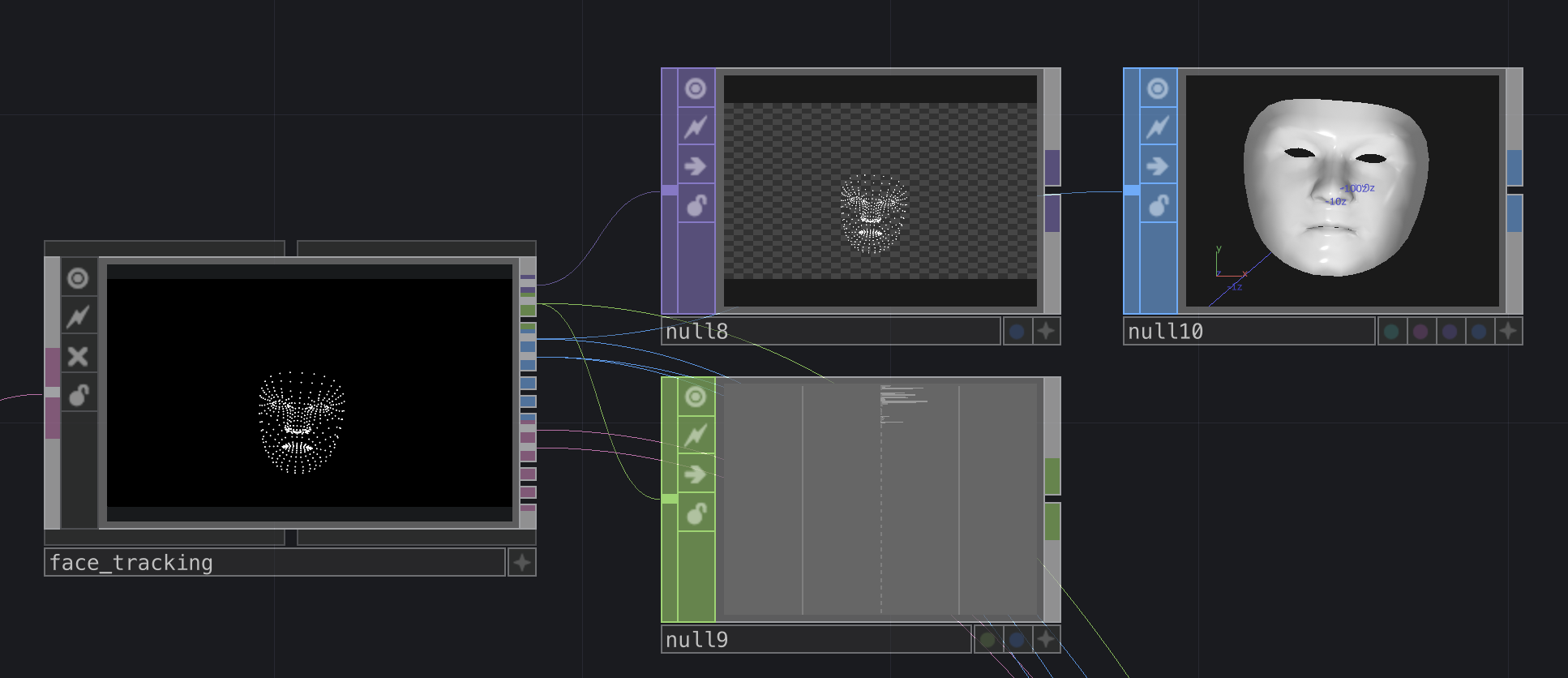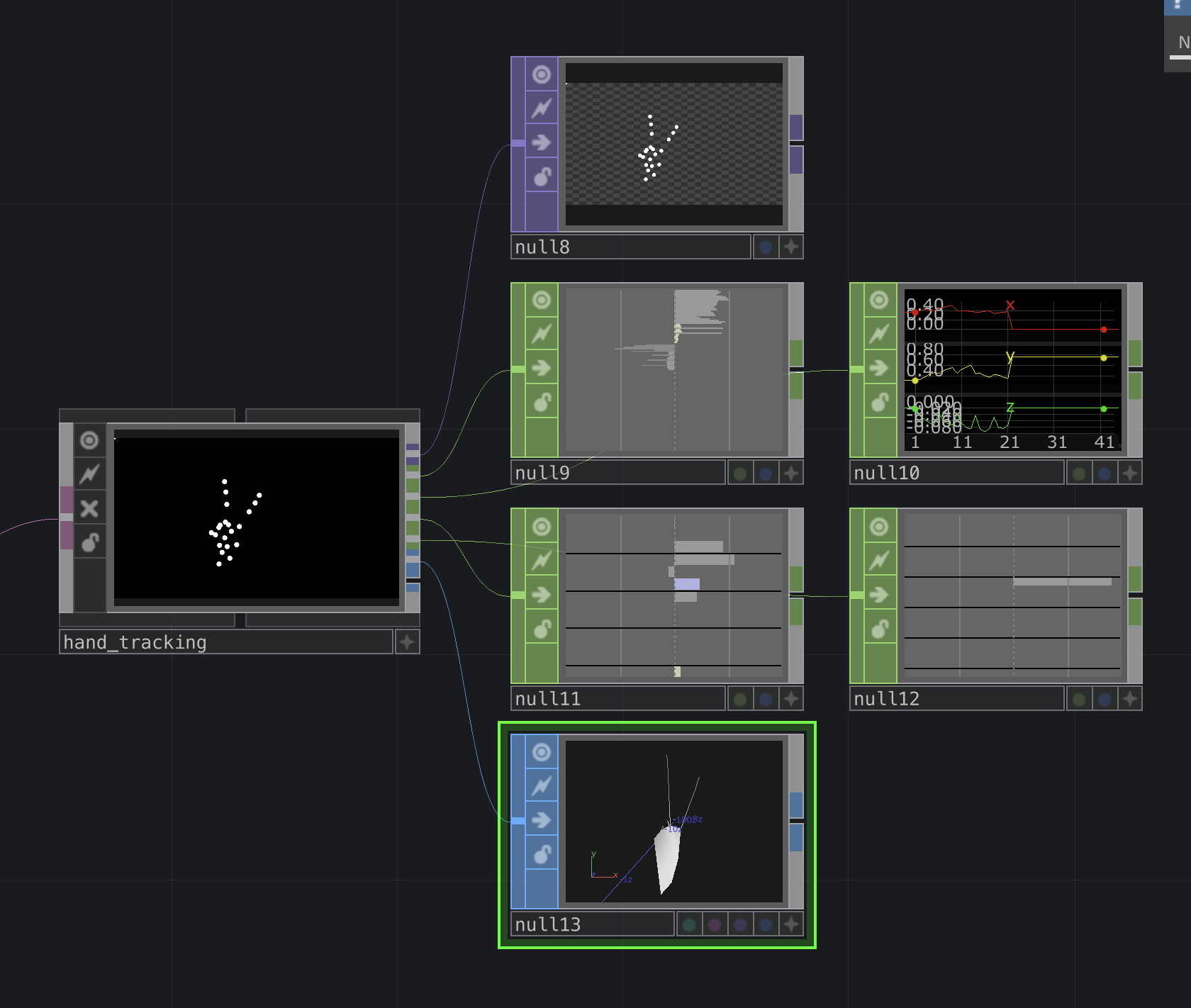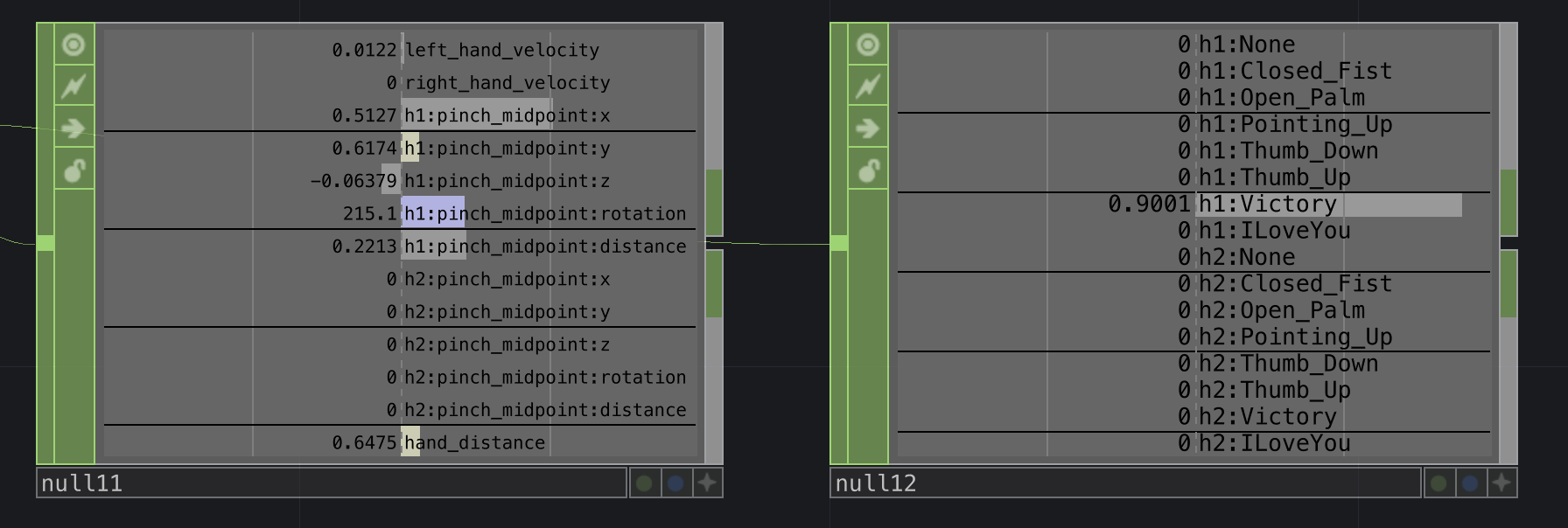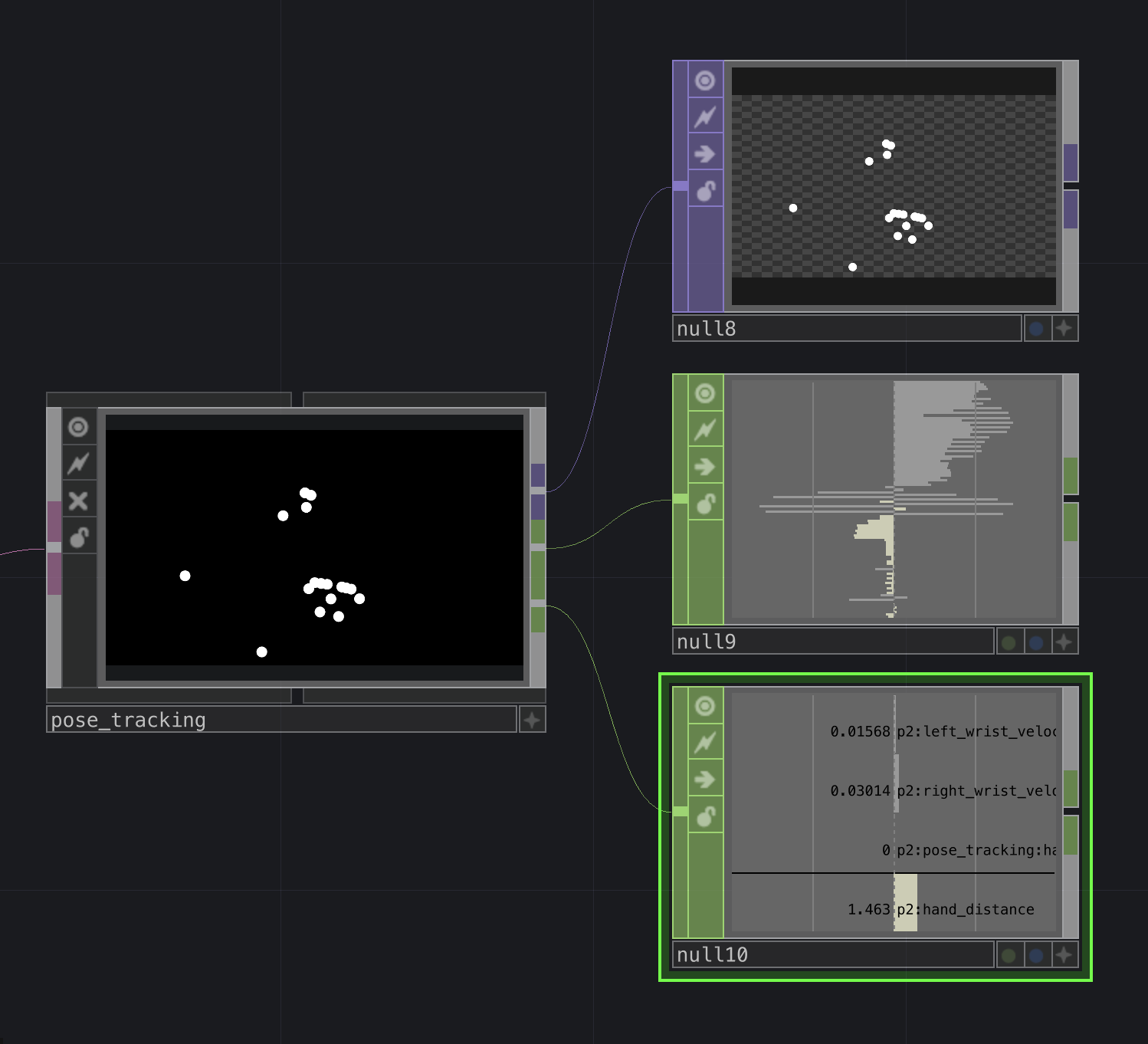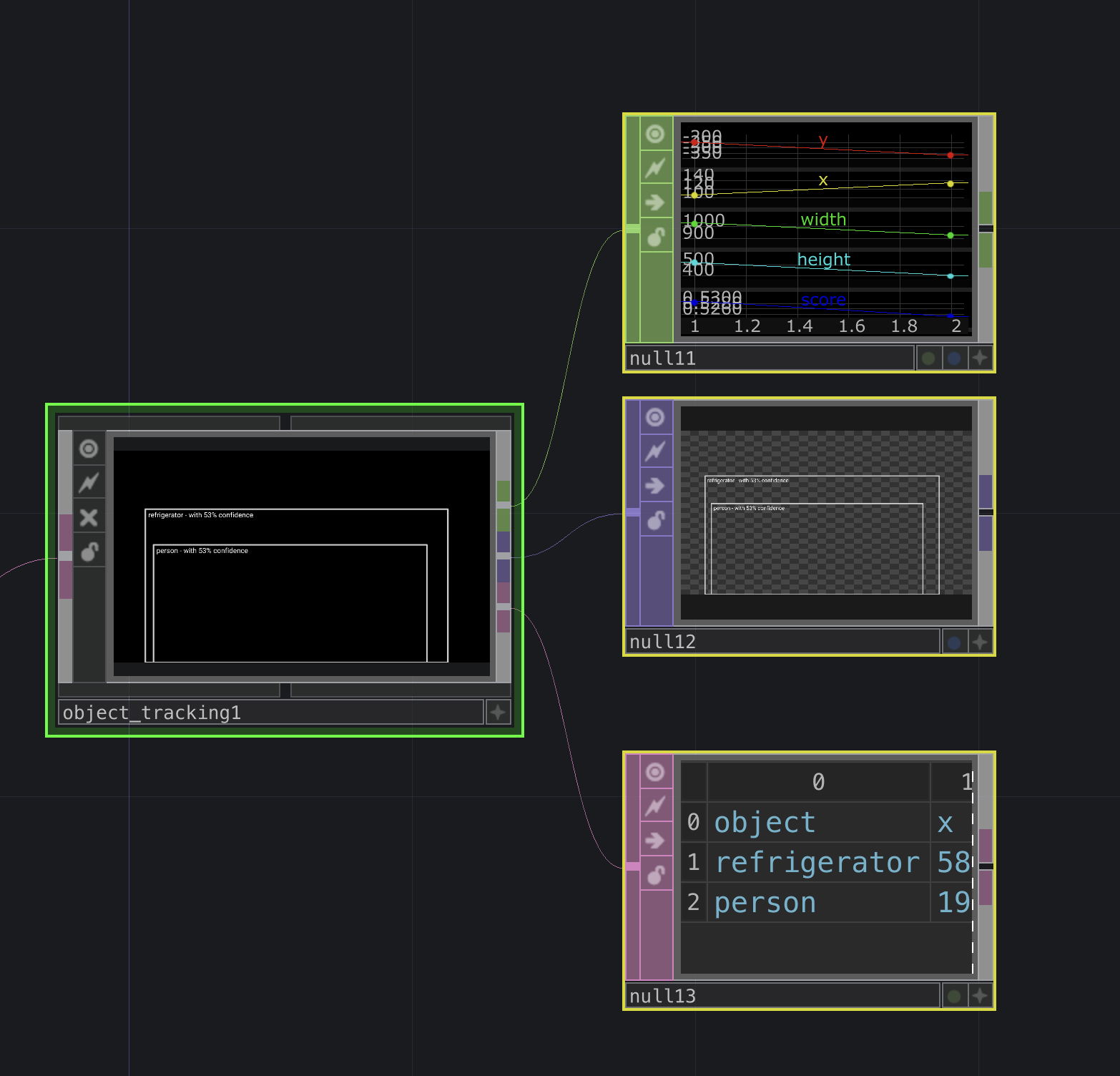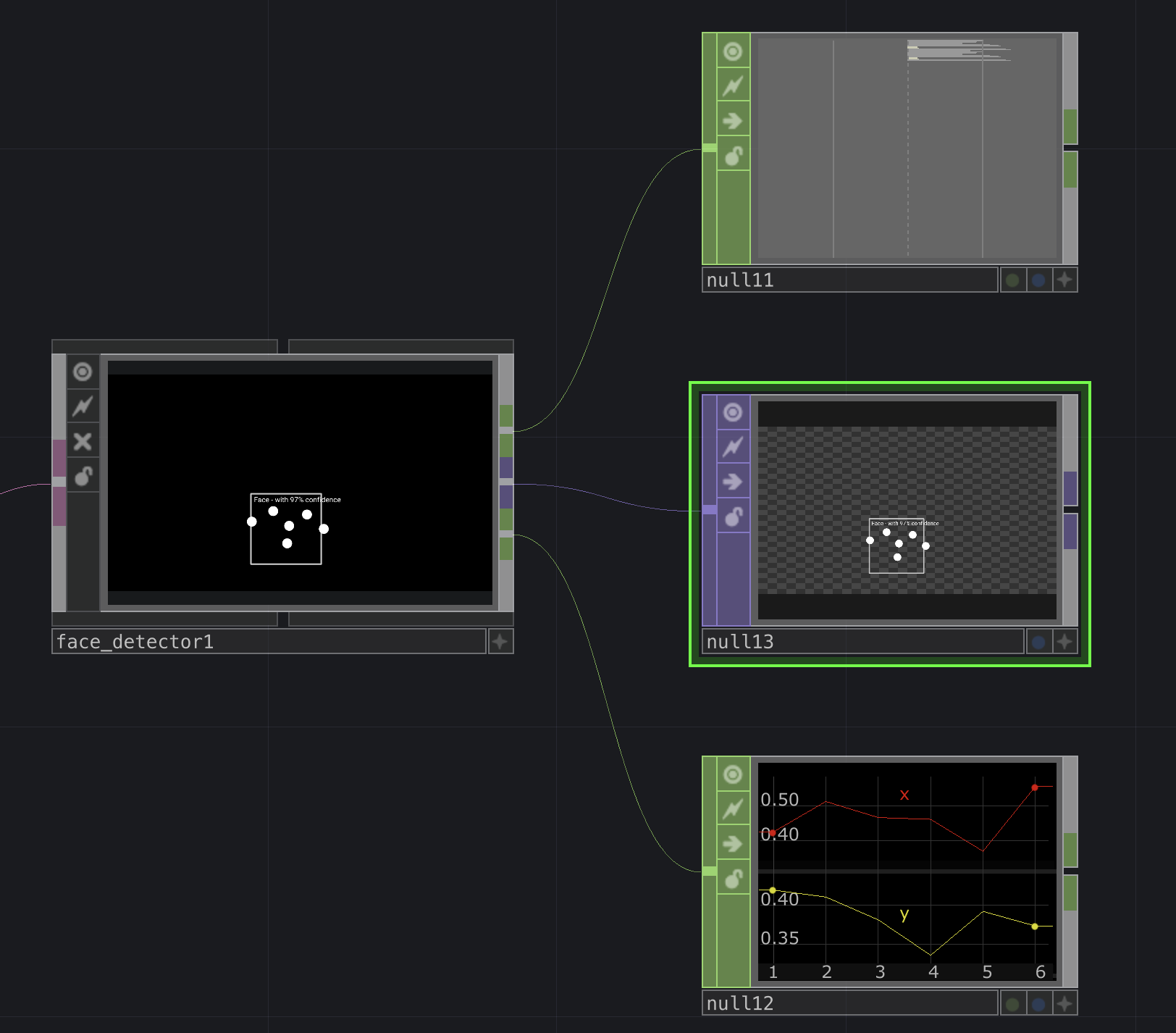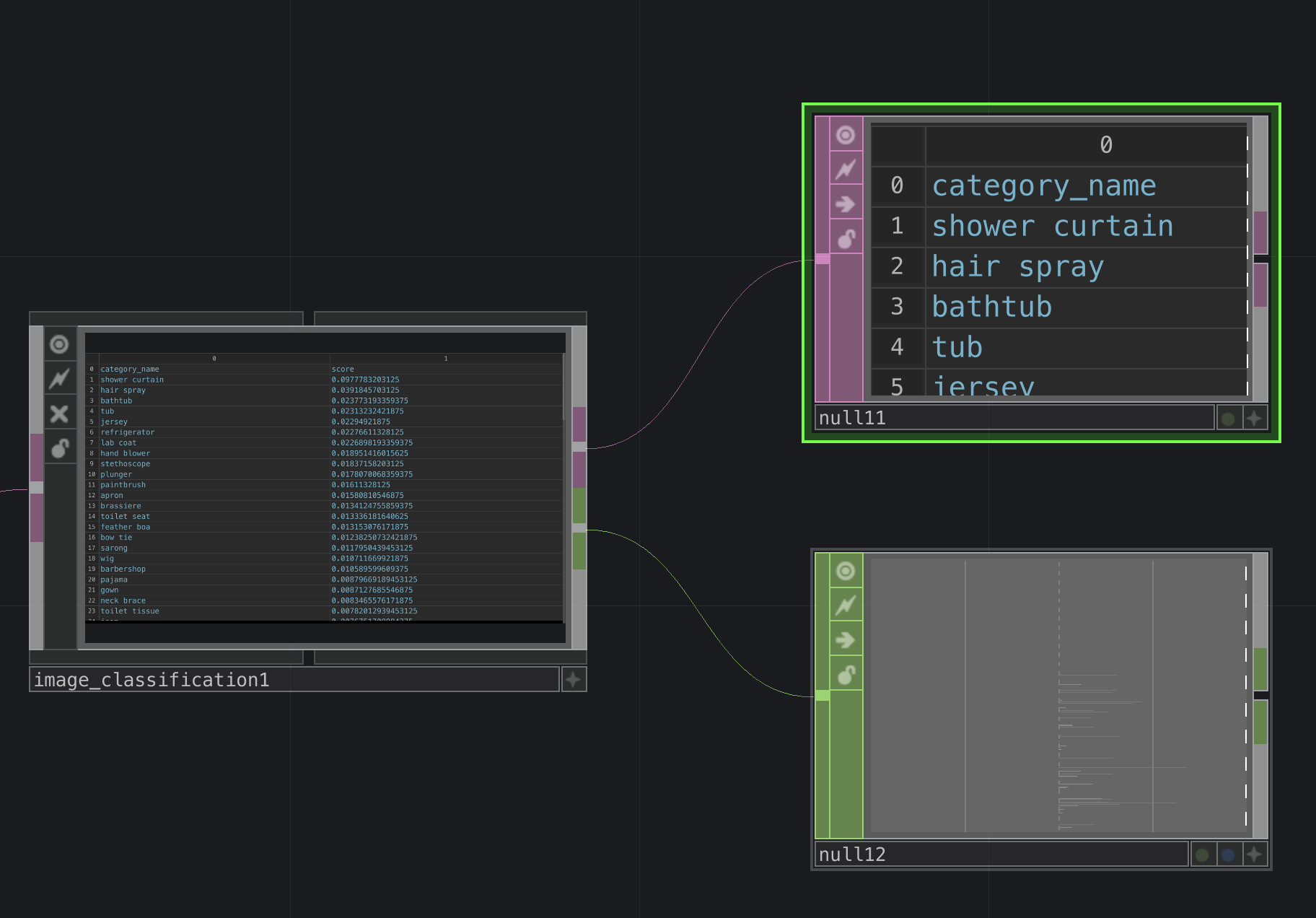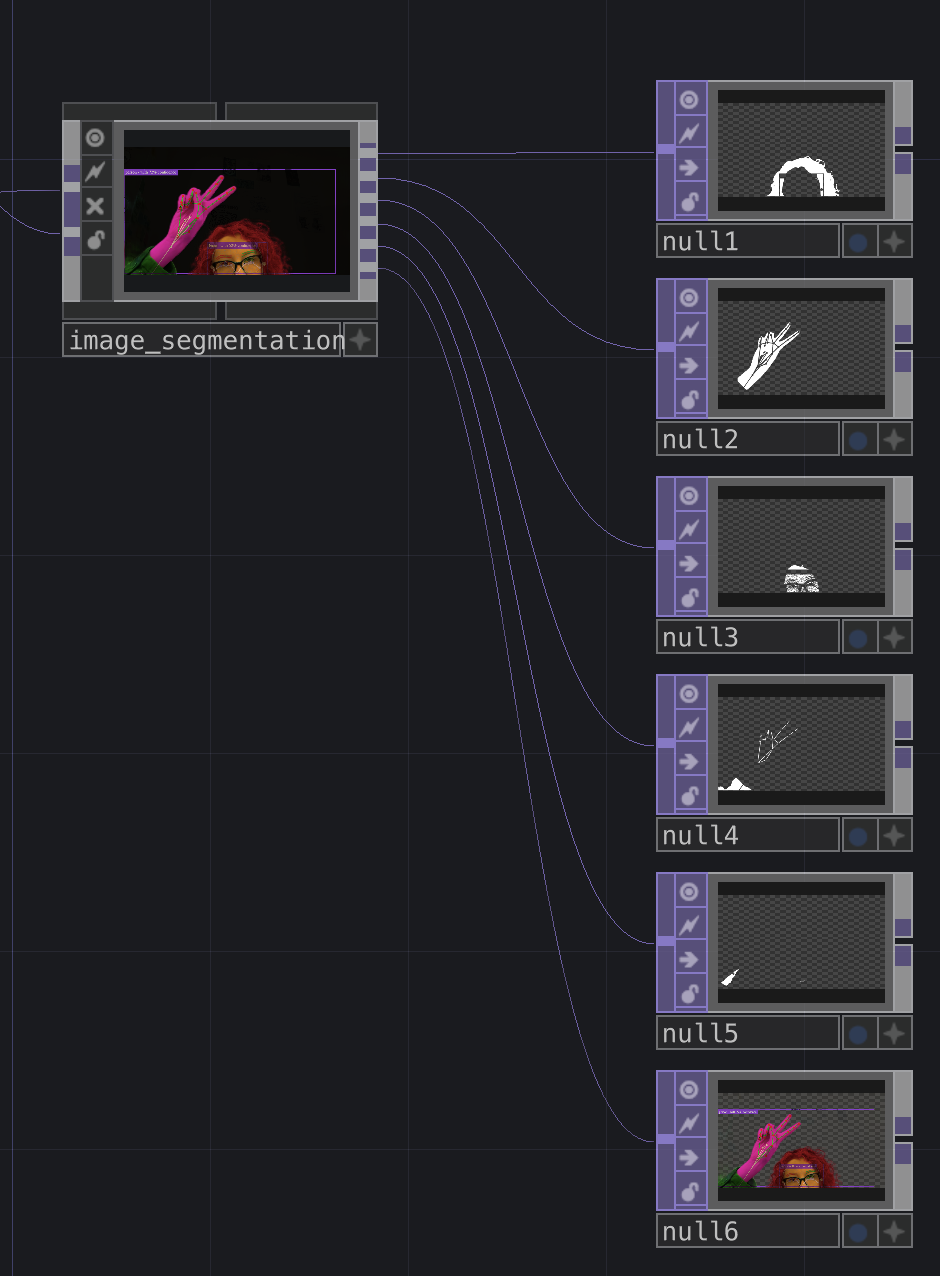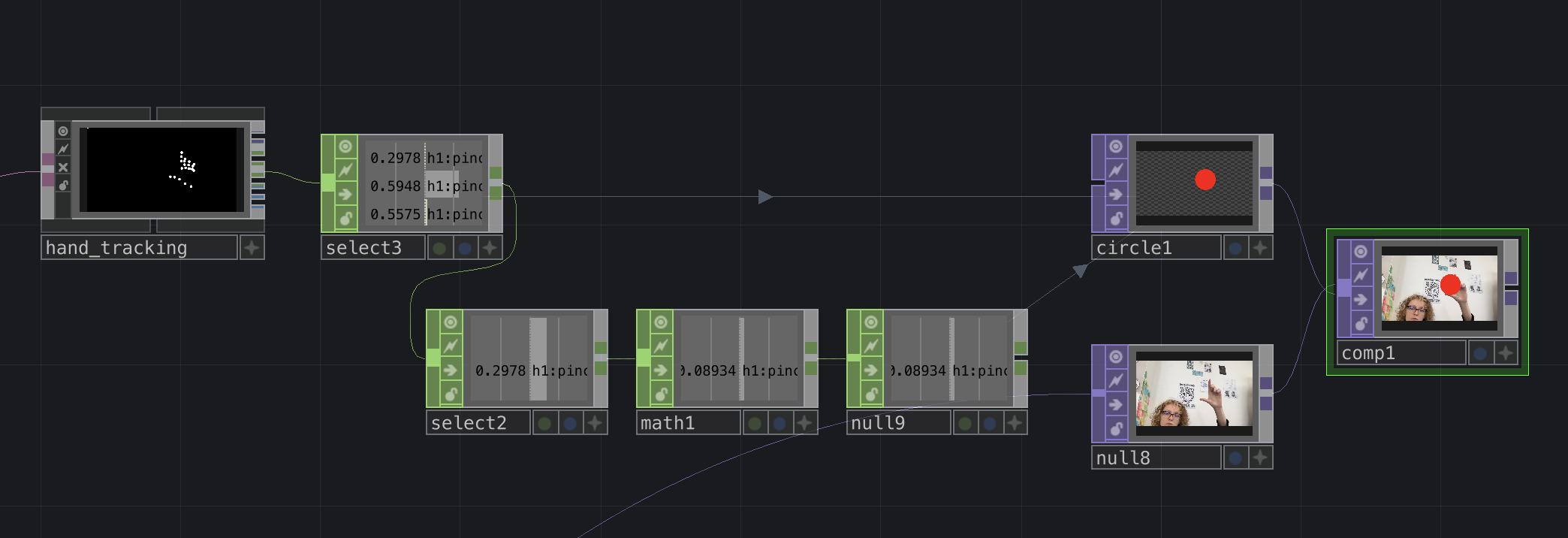Or how to use MediaPipe in Touchdesigner to get datas from the webcam and use them to create interactions.
MediaPipe is a computer vison centered machine-learning framework.
In Touchdesigner, we can use it to get the position of a person "skeleton" in front of a webcam, and use the datas to create interactions.
The MediaPipe documentation for TD on github, with the presentation video.
The download link of the latest release.
 The example file MediaPipeTouchdesigner.toe.
The example file MediaPipeTouchdesigner.toe.
The MediaPipe node contains a lot of the things that makes it work, but we won't get into it.
The first output of the MediaPipe node is a CHOP that allows us to check the informations of time and delays.
The tracking of one or multiple persons' faces with the node face_tracking allows us to get the position of the face and each of its points, as well as a 3D mask of the face. We track up to 5 faces.
The tracking of hands with the node hand_tracking allows us to get the position of both hands and theirs points, as well as a 3D render.
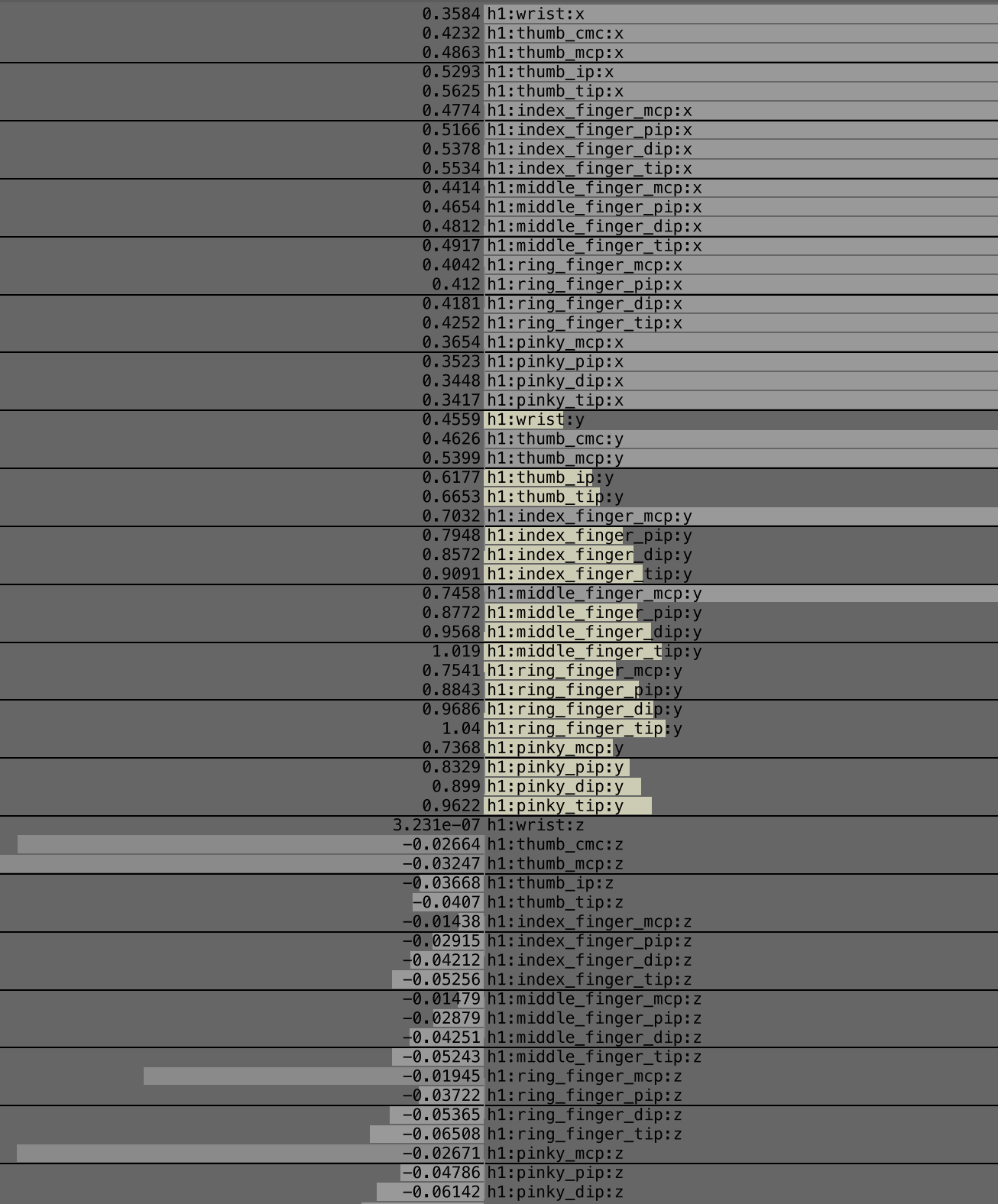 Points from left hand and fingers
Points from left hand and fingers
We also get the velocity of the hands, the distance between left and right hands, and the data of "pinch" gesture in the helpers CHOP, as well as 8 gestures for each hand in the gestures CHOP.
The "skeleton" tracking with the node pose_tracking allows us to get the positions of different body parts, as well as the velocity of the wrists and hands distance. We can track up to 5 persons.
The detection and classification of objects with the node object_tracking1 is used to "see" objects on the video and recognize them with more or less confidence. It does not works very well.
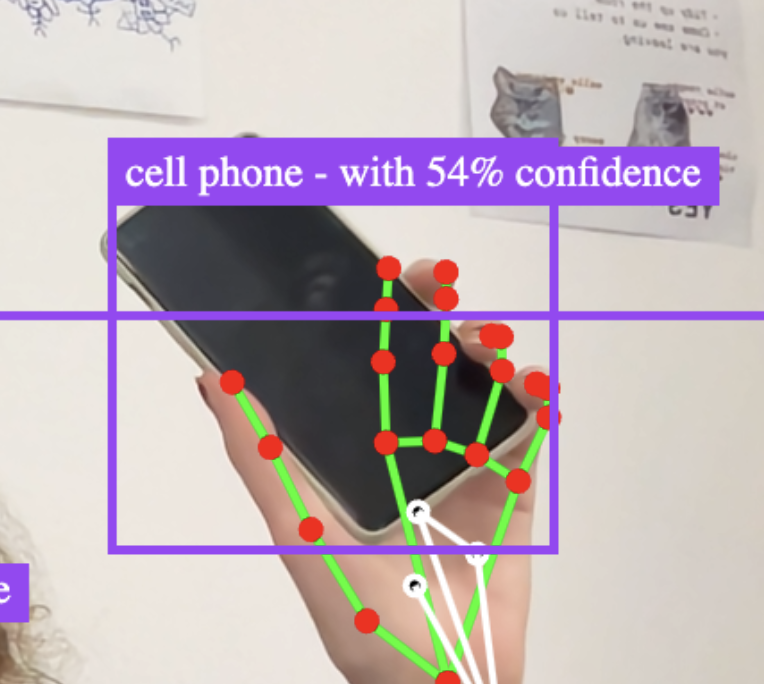 Here my phone being detected with only 55% confidence
Here my phone being detected with only 55% confidence
The face_detector1 node is used to detect faces and get the positions of each points.
The image_classification node tries to recognize objects on the image. It does not works very well.
I am not sure yet of the use of the Virtual Webcam Chain, but you can turn on the camera in the first node, the videodevin.
By turning on the parameter Image Segmentation in the MediaPipe node, the webcam video in the MediaPipe node becomes segmented by color depending of body parts (hands, face, hair) and the background.
In the outputs of the image_segmentation node, there is one output for each color with the shape in white on top of a transparent background. There is also the whole person on a transparent background if the camera of the Virtual Webcam Chain is turned on.
It is best to turn off Show overlays in the MediaPipe node to hide every detections on top of the webcam video, so they don't appear neither on the segmented parts.
We can for example get the position of the "pinch" (between thumb and index), and the distance measured.
We create a select TOP on the "helpers" (4th) output, and we select "h1:pinch_midpoint:distance" (distance between the fingers), "h1:pinch_midpoint:x" and "h1:pinch_midpoint:y (the x and y position of the midpoint of the distance between the fingers).
la valeur 0,0 sur une image sur touch c'est le milieu de l'image, sur mediapipe 0,0 c'est en bas à gauche.
recalculer les données y en 3d : faire un select avec "*:y" ( * = tout, $:y = tout ce qui finit par y )
